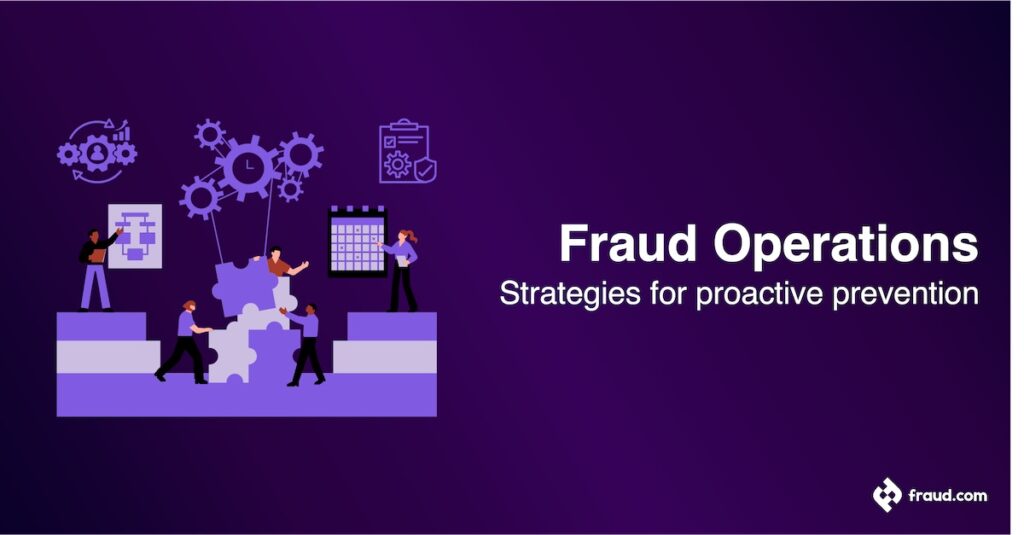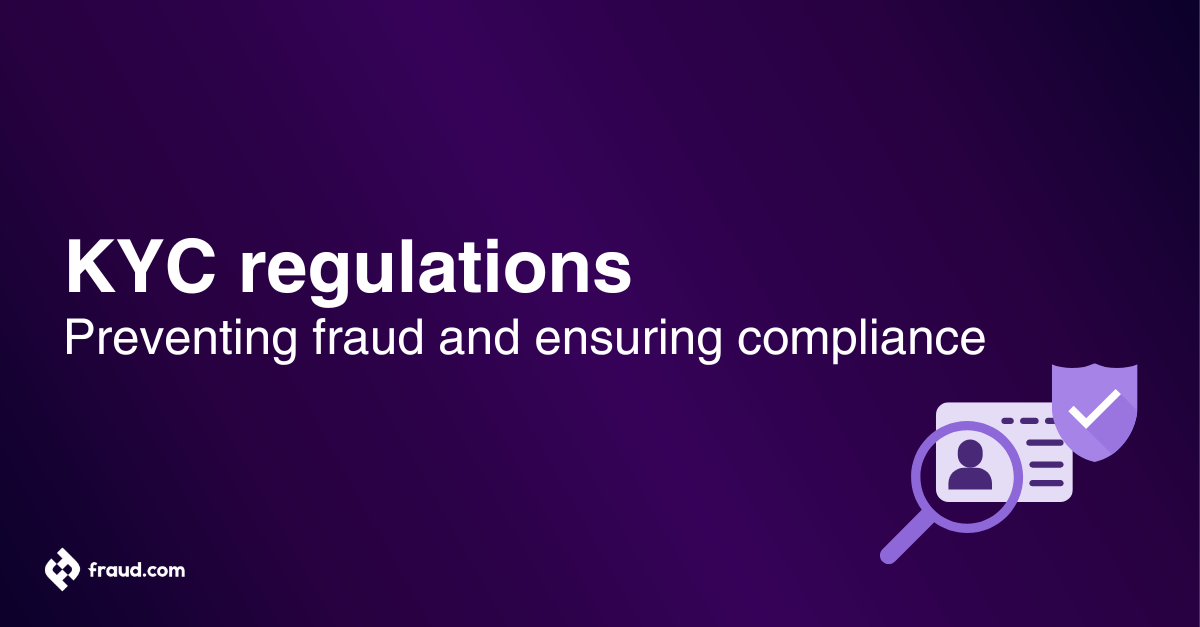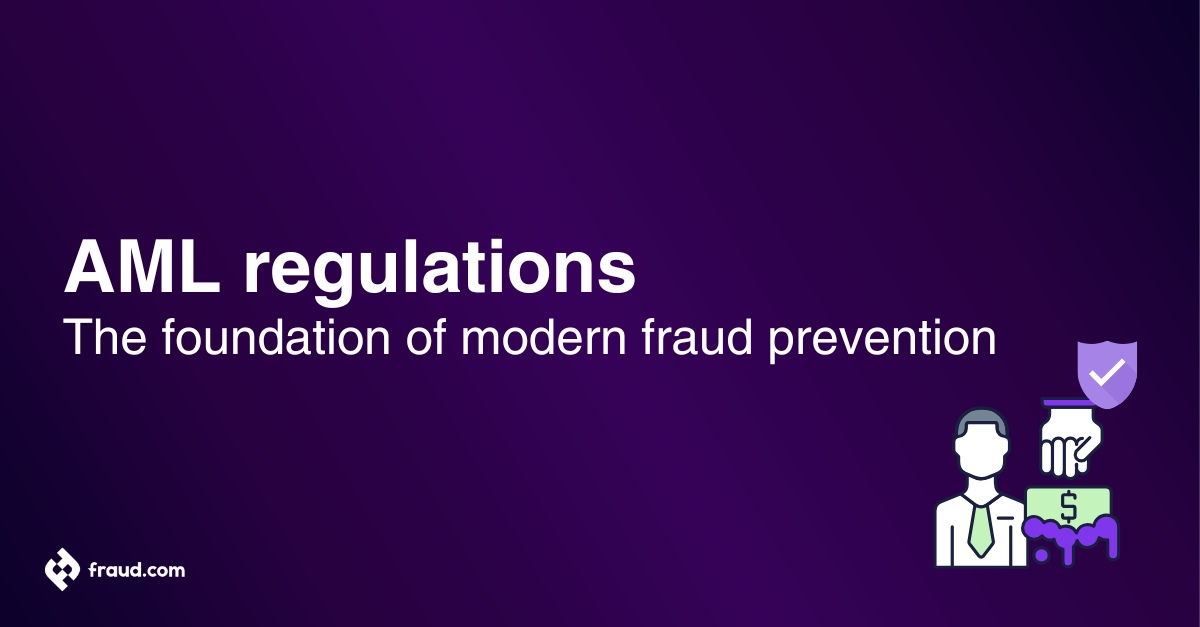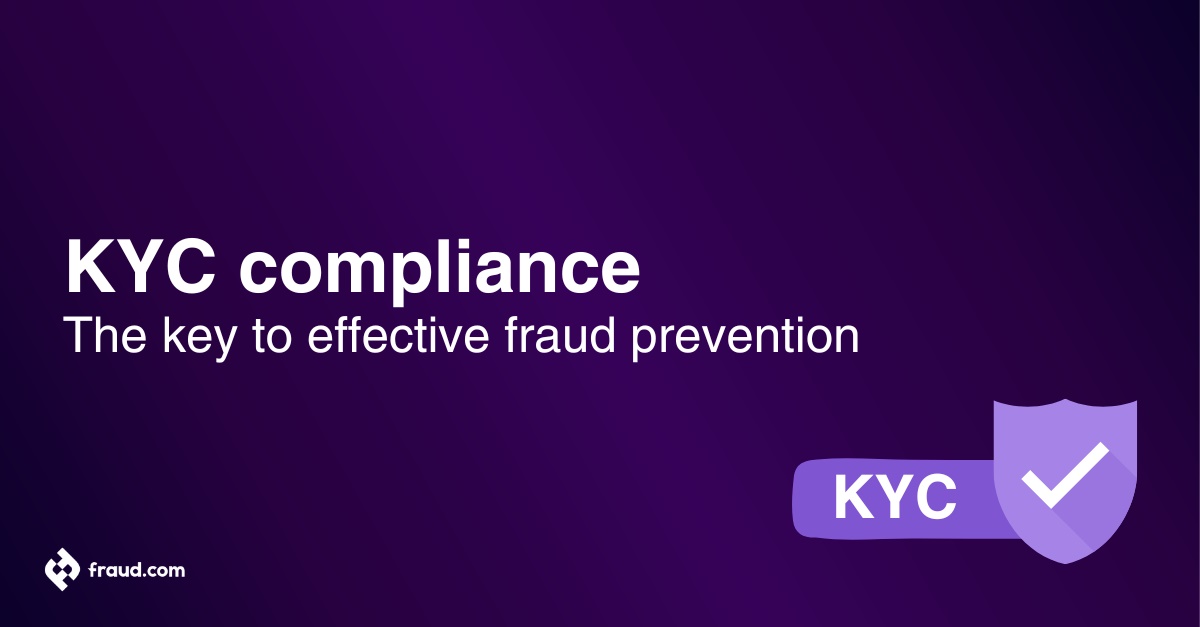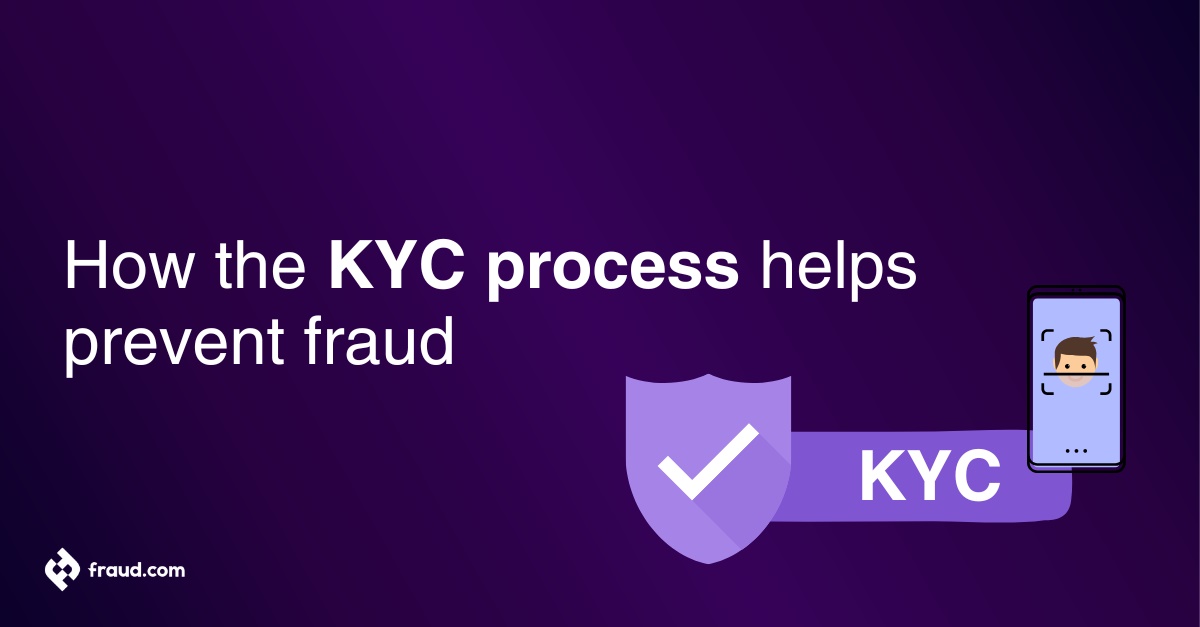Fraud has become an increasingly sophisticated and pervasive threat in today’s interconnected and digitised world. With the rapid evolution of technology, fraudsters continually devise new tactics to exploit vulnerabilities across industries. In response to these growing challenges, the concept of Fraud Operations involves comprehensive management and prevention techniques designed to combat fraud. It has emerged as a dedicated field that encompasses a range of strategies and methodologies to mitigate fraudulent activities.
This specialised area operates within the framework of fraud orchestration, aiming to streamline efforts and resources toward a common goal: safeguarding financial systems and transactions. As we delve into the realm of fraud operations, we’ll uncover the innovative approaches that organisations, particularly financial institutions, are adopting to tackle the ever-evolving landscape of financial fraud.
This article delves into the core principles of fraud operations, shedding light on the techniques and technologies that institutions are leveraging to counteract fraud’s impact effectively. We will explore the concept of Fraud Operations and how financial institutions are innovatively strategising to prevent fraud attacks.
What is fraud operations
Fraud Operations is the operational strategy system used by companies, particularly financial institutions and banks, to administer a robust risk management framework against fraudulent transactions and financial crimes. It adapts to an approach of fraud orchestration that coordinates and centralises the entire fraud management process. It helps identify fraud, reduce fraud losses, and importantly, reduce the risk of such events.
As fraud operations work under the umbrella of fraud orchestration, much like risk operations, but with a central focus on fraudulent activities, it plays a pivotal role in orchestrating a proactive and synchronised response to the complexity of fraudulent schemes that threaten financial institutions, businesses, and individuals.
Table of Contents
ToggleEvolution of Fraud Operations
Historically, fraud operations focused on manually identifying and resolving irregularities in transactions. But with the increasing sophistication of fraudulent activities, new approaches became essential. Increasing advancements in artificial intelligence and machine learning and regulatory changes lead to the transformation from basic anti-fraud techniques to modern orchestrated fraud operations.
Evolution highlights:
- Manual examination: Early fraud operations relied on manual examination of transactions, often leading to delays in detection and response.
- Technological integration: The integration of technology introduced automated fraud monitoring systems that flagged suspicious transactions based on predefined rules.
- Machine learning integration: The evolution of machine learning allowed for the development of predictive models that analysed vast datasets to identify subtle patterns indicative of fraudulent behaviour.
- Real-time monitoring: With the advent of real-time data processing, fraud operations gained the ability to identify and respond to potential fraud in near real-time, minimising losses.
- Fraud orchestration: The paradigm shift towards fraud orchestration introduced a holistic approach to fraud operations, integrating diverse strategies and technologies for a comprehensive defence against fraud.
- Cross-region collaboration: As fraud tactics grew more complex, different regions and areas began sharing insights and intelligence to collectively combat fraud, fostering a collaborative ecosystem.
- Behavioural analytics: The incorporation of behavioural analytics enabled the detection of anomalies in user behaviour, contributing to proactive fraud prevention.
- Adaptive authentication: Orchestrated fraud operations embraced adaptive authentication, dynamically adjusting security measures based on risk levels.
- Predictive analytics: Advanced predictive analytics leveraged historical data to predict emerging fraud trends, allowing organizations to stay one step ahead.
- AI-driven Investigations: AI-powered fraud investigations streamlined processes, reducing manual effort and enhancing accuracy.
In essence, the evolution of fraud operations reflects a constant effort to match the agility of fraudsters with increasingly sophisticated tools and strategies. This evolution has shaped modern fraud operations into a dynamic and multifaceted discipline that continues to adapt and innovate in the face of ever-changing fraudulent threats.
Understanding Fraud Orchestration
Fraud orchestration, at its core, revolves around centralisation and coordination, serving as a dynamic defence against the landscape of financial fraud. This section delves into the fundamental principles and technology-driven enablers that empower fraud orchestration to effectively combat evolving fraudulent activities.
Core principles of fraud orchestration
Fraud orchestration primarily involves centralisation and coordination. It uses advanced prevention technology to streamline and consolidate anti-fraud responses. The system utilises fraud prevention tools that use real-time data to enhance efficiency and improve results.
This orchestration extends beyond simple compilation; it involves the strategic alignment of resources and tools to create a unified response mechanism. In this paradigm, advanced prevention technology takes centre stage, as it harmonises the efforts of various anti-fraud components. By capitalising on real-time data, the orchestration system leverages the power of immediacy to fine-tune responses, elevating the efficiency of the entire fraud prevention ecosystem.
Through the lens of these core principles, fraud orchestration transforms fraud operations into a synchronised masterpiece, where each note of data and every beat of technology harmonise to prevent fraud.
Technology enablers for fraud orchestration
Technology plays a starring role in enabling Fraud Orchestration. Automated systems and big data analytics are pivotal in orchestrating complex anti-fraud strategies. These technologies help reduce false positives and swiftly detect fraud in real time.
Think of it like a well-coordinated team where smart systems and data analytics play crucial roles. Automated systems act like skilled choreographers, ensuring quick and coordinated responses to fraud situations. And big data analytics? Well, they’re like your trusty advisors, helping you make informed decisions from a sea of information.
With these tech helpers, fraud orchestration becomes a symphony of efficiency, catching fraud quickly and minimising mistakes.
Innovative strategies for fraud operations management with fraud orchestration
Fraudsters’ tactics evolve with the digital age, demanding innovative approaches to combat their ever-changing schemes. This section explores cutting-edge strategies that leverage the power of fraud orchestration, ensuring a proactive defence against financial fraud.
Real-time fraud response
In today’s fast-paced digital landscape, the speed of fraud response can make all the difference. Harnessing the capabilities of robust fraud ops management, organisations are empowered to swiftly identify fraudulent activities as they unfold in real-time. These technologies not only enhance the accuracy of detection but also enable automated actions to be taken in response to suspicious events.
This dynamic approach not only curtails the time window for potential fraud but also optimises the allocation of resources by swiftly mitigating threats. As a result, real-time fraud response contributes to minimising financial losses and fortifying the overall resilience of fraud operations.
Adaptive risk assessment
In the ever-evolving landscape of fraud prevention, adaptive risk assessment has emerged as a groundbreaking strategy. This approach tailors procedures based on real-time risk level assessments. By dynamically adjusting the intensity of risk measures, organisations can allocate higher security measures for high-risk transactions while ensuring a smoother user experience for lower-risk activities.
Moreover, the integration of behavioural analytics into risk assessment brings a layer of continuous monitoring, allowing for the early identification of anomalies and potential fraudulent activities. This synergy between adaptive risk assessment and behavioural analytics not only enhances security but also adds a proactive layer that significantly boosts the effectiveness of fraud prevention measures.
Centralised fraud automation
Centralised fraud automation forms a single customer view, allowing institutions to permit, block, manually check, and evaluate the level of trust during the customer journey. While customers expect frictionless experiences, they also desire protection. In cases where security concerns arise, the right level of security is applied based on the combined threat rather than individual risks.
This balance between customer convenience and security is managed intelligently by fcase, which oversees the fraud prevention response in real-time. It unifies all risks, customer data, and transactional systems, delivering a continuous and adaptive risk and trust assessment. These efforts reduce both fraud instances and friction from the customer’s perspective.
Centralised case management
Centralised and intelligent case management provides a common investigation platform in a centralised platform that covers all point systems like anti-fraud and cybersecurity. By delivering a comprehensive fraud prevention layer that presents an in-depth view of fraud activities, investigations become more accurate. The platform conducts the research automatically, categorising results by threat, which can improve operational efficiency up to nine times. These systems improve decision-making processes, decrease false positives, and cut down unnecessary costs.
Centralised fraud reporting
Understanding the full scope of fraud across an organisation can be challenging, especially when dealing with disparate systems. fcase offers a solution to this issue by enabling users to create reports based on any data criteria. This orchestration can yield hundreds of reports, offering critical insights to manage fraud effectively. Such coherent imaging of the fraud landscape helps in strategising anti-fraud management, preventing potential attacks and reducing operational costs.
By leveraging these innovative strategies, financial institutions can adopt a proactive approach to Fraud Operations Management, reaching significant milestones in their anti-fraud performance.
Collaborative efforts and data sharing in fraud operations
In the ever-evolving landscape of fraud operations, the battle against financial crimes requires a unified approach that transcends industry boundaries and geographical limitations. This section sheds light on the power of collaborative efforts and the transformative potential of data sharing in the realm of fraud prevention and management. By harnessing the collective strength of cross-sector partnerships and centralised data-sharing platforms, organisations are poised to revolutionise their defence mechanisms against the ever-adapting strategies of fraudsters.
Cross-sector or regional collaboration
Fraudsters are opportunistic and agile, making it imperative for countermeasures to be equally dynamic. Collaborative partnerships that extend across diverse sectors and geographical regions form a critical line of defence against the intricate web of fraudulent activities. By uniting expertise, experiences, and insights from different areas, these alliances create a fortified front that anticipates, identifies, and prevents the evolving tactics of fraudsters. The fusion of shared knowledge and joint vigilance amplifies the overall effectiveness of fraud operations, ensuring a more resilient financial ecosystem.
Centralised data-sharing platforms
In a world driven by data, information exchange emerges as a transformative force in fraud prevention. Centralised data-sharing platforms serve as secure conduits for the seamless flow of intelligence. This exchange of shared insights from various sources enhances the accuracy of fraud detection and prevention and deepens the understanding of intricate fraud operations.
By unifying data streams and leveraging collective intelligence, organizations equip themselves with a comprehensive understanding of the evolving threat landscape. This understanding empowers swift and informed decision-making, resulting in a proactive stance against fraud.
The future of fraud operations
As the landscape of fraud operations continues to evolve, the horizon brings forth a host of technological advancements and ethical considerations. This section explores the transformative potential of emerging technologies and the delicate equilibrium between innovation and privacy that will shape the future of fraud operations management.
The domain of fraudulent activities is on the brink of a significant transformation, propelled by revolutionary technologies that have the potential to reshape our strategies for fraud prevention and detection. Quantum computing, with its unparalleled processing capabilities, could potentially decipher complex patterns in fraud data, providing an upper hand in identifying previously inconceivable correlations. Blockchain, renowned for its immutable nature, might herald an era of tamper-proof transaction records, fortifying security in financial interactions.
Advanced fraud data analytics, bolstered by machine learning and AI, could elevate the accuracy of fraud prevention models to unprecedented heights, effectively outsmarting even the most sophisticated fraudulent tactics. These forthcoming technological disruptions demand the recalibration of strategies, the upskilling of professionals, and a relentless pursuit of innovation to stay ahead of fraudsters.
Fraud operations by fcase
In the realm of fraud prevention systems, fcase stands out as a security orchestrator leader. Its solution collaborates with existing fraud prevention systems such as anti-money laundering and transactional monitoring, enhancing their effectiveness. This coordinated approach, similar to teamwork, uses data orchestration to create a comprehensive view across various devices and channels, strengthening fraud prevention.
- fcase’s unique role in fraud prevention: fcase’s fraud orchestration and management suite transforms the landscape for banks by serving as a centralised hub for data aggregation, prevention, and eradication of fraud. This evolution enables fraud management systems to transcend their standalone detection phase, evolving into a holistic, enterprise-focused approach. The suite seamlessly integrates data from diverse sources, providing a consolidated and effective management platform. Furthermore, the significance of fcase’s role goes beyond mere integration. It eases the burden of periodic anti-fraud system revisions, which are often performed every few years. In this way, fcase’s orchestration provides not only efficiency but also longevity to the fraud management landscape.
- Collaboration elevated through integration: Acknowledging the broader scope of financial operations, fcase seamlessly integrates with third-party business applications, including customer relationship management (CRM) systems. This integration fuels collaboration through the adaptable fcase web forms, simplifying complexities, enhancing case processing speed, and setting new standards for fraud and risk management.
- Unrivalled compliance and reporting: As the hub for all things fraud-related, fcase’s orchestrator also extends its influence to corporate fraud compliance reporting. With an arsenal of Payment Services Directive (PSD2), Article 96(6)-compliant reports, as well as standard fraud, performance, and investigator efficiency reports, fcase ensures that every compliance need is met and every aspect of fraud management is empowered. In the era of fraud orchestration, fcase stands as the maestro, orchestrating a harmonious and adaptive defence against evolving threats. Its presence enhances the melody of fraud prevention, uniting instruments of data, systems, and collaboration into a symphony of security and trust.
Fighting fraud requires collaboration, a single customer view that fcase fraud orchestration provides for centralised intelligence on existing anti-fraud investments. This reduces the risk of fraud and operational costs while driving the customer risk and trust journey. By reinforcing the importance of fraud operations through orchestration, organisations can effectively counter evolving threats, staying adaptable in the dynamic landscape of fraud operations.
In conclusion, Fraud Operations Management is imperative for financial institutions to effectively combat fraudulent activities. By taking a proactive approach to fraud, organisations can stay ahead of fraudsters, keeping their customers’ trust and kin firmly in place.

